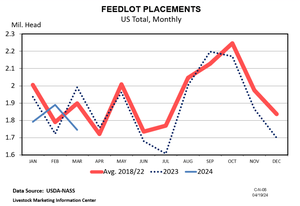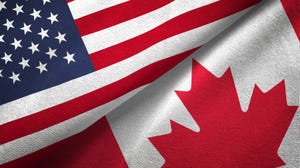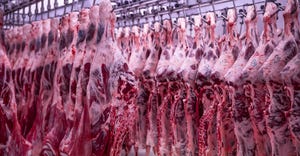The World Trade Organization (WTO) announced its finding last Friday that the U.S. country-of-origin labeling (COOL) law violates WTO rules. The WTO panel commented on two separate issues: The actual U.S. statutory provisions and a letter issued by USDA Secretary Tom Vilsack that suggested voluntary labeling procedures that were more restrictive than the actual USDA rules.
November 23, 2011

The World Trade Organization (WTO) announced its finding last Friday that the U.S. country-of-origin labeling (COOL) law violates WTO rules. The WTO panel commented on two separate issues: The actual U.S. statutory provisions and a letter issued by USDA Secretary Tom Vilsack that suggested voluntary labeling procedures that were more restrictive than the actual USDA rules.
The panel found that the COOL program is a technical regulation that is "inconsistent with the U.S.' WTO obligations," since it accords less favorable treatment to imported Canadian cattle and hogs than to like domestic products. Further, the panel found that COOL doesn't fulfill its legitimate objective of providing consumers with information on origin. Both factors constitute violations of WTO rules.
The Vilsack letter's suggestions for voluntary action, according to the panel, go beyond certain obligations under the COOL program and, thus, are an unreasonable administration of COOL.
As noted, the ruling dealt with Canada's challenge to the COOL law and resulting regulations. Canada was later joined by a number of other countries that export products covered under COOL.
The U.S. will almost certainly appeal the decision, but most observers believe the result won't change, thus paving the way for Canada, Mexico and, possibly, other countries to place punitive tariffs on U.S. goods. The U.S. will have a year after the appeal ruling is received to make changes to the law to avoid the retaliatory tariffs.
The tariffs could be avoided, but I think that would require a repeal of the COOL law – or at least amendment of the COOL law. There is some hope that an administrative fix (i.e., change the rules) can be accomplished by USDA, although I'm not sure how we could change the rules enough to satisfy WTO and still be within the law. There is little interest in Congress to do anything at present, but that may change as the date for punitive action draws nigh.
You May Also Like



